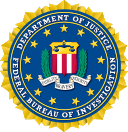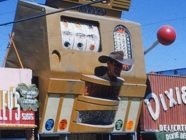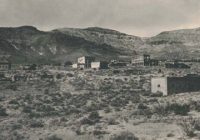|
Listen to this Gambling History blog post here
Getting your Trinity Audio player ready...
|

U.S. FBI seal
1970-1975
In a massive, coordinated effort, federal agents raided illegal bookmaking operations throughout the U.S. with ties to organized crime.
On December 12, 1970, Federal Bureau of Investigation (FBI) and Internal Revenue Service (IRS) agents struck in 11 states and 26 cities, including Las Vegas, Los Angeles, New York, Detroit, Miami Beach, six in Ohio and five in Georgia. The feds served 160 search warrants and made 27 arrests.
Mobsters Wanted
In Nevada, the Feds targeted Caesars Palace and the Rose Bowl Sports Book in Sin City. The following men were arrested, among others, for allegedly running an illegal sports book, in connection with the nation’s top bookmakers, between Palm Springs, California and Las Vegas. They were charged with violating interstate gambling laws.
• Frank “Lefty” Rosenthal, Rose Bowl Sports Book manager and alleged Chicago Outfit member
• Jerome Zarowitz, former Caesars Palace casino manager and reputed mob associate in partnership with the New York Genovese and Boston Patriarca crime families
• Elliot Paul Price, Caesars Palace casino host and alleged Patriarca crime family associate
• Sanford Waterman, executive vice president of Caesars Palace
When FBI agents raided Caesars Palace, they seized about $1.6 million in $100 bills (about $9.9 million today), mostly from Zarowitz’s lockboxes kept at the casino, the rest from those of Price and Waterman.
Watertight Case … or Not
With the defendants free on bond, a trial was set, and the defendants retained attorney Oscar Goodman to represent them.
“The case hinged on wiretap information, which solidly established the multi-state connections and the activity of the group. In short, they were dead,” Goodman said in Of Rats and Men, John L. Smith’s biography of the attorney who later became Las Vegas’ mayor.
In prepping for the case, Goodman noticed an irregularity on the wiretap authorization, that someone other than U.S. Attorney General (AG) John Mitchell had signed his name. The defense attorney later determined the assistant AG had signed for his boss, which is illegal.
On that basis, Goodman requested the court dismiss the case. It did, but an appeal followed.
Ultimately, in late 1975, District Court Judge Roger Foley ended the saga for good. He determined the federal government hadn’t exhausted all other investigative avenues before they’d resorted to bugging and that made the wiretap evidence inadmissible. Without it, prosecutors didn’t have a case.
“Every defendant walked away without a scratch from the biggest federal assault on the national bookmaking syndicate since the Roaring ’20s,” Smith wrote in Of Rats and Men.







1 comment